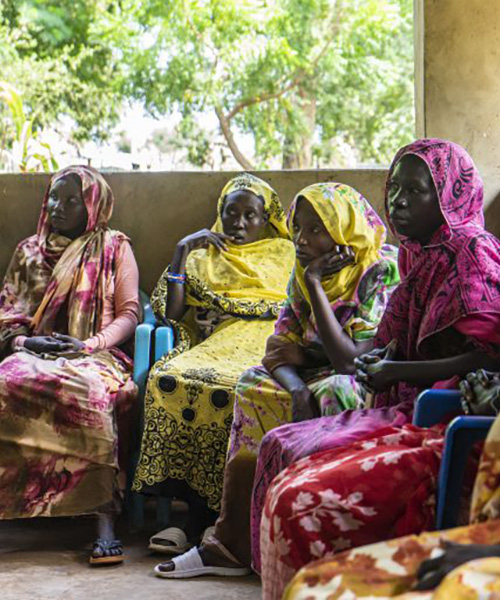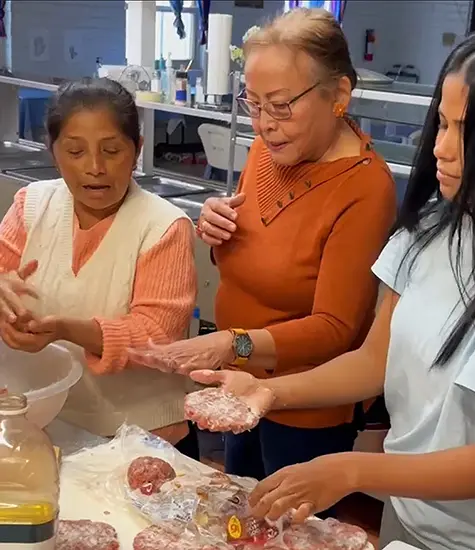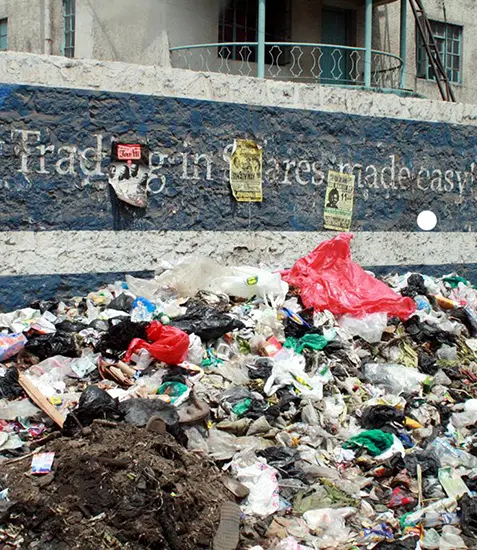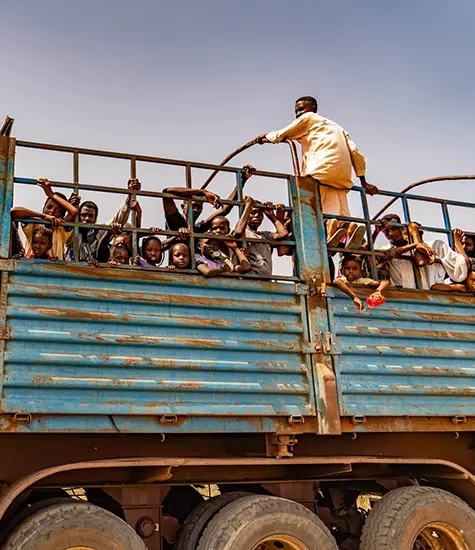Advent 2022 newsletter
Dee Dungy, Kenya
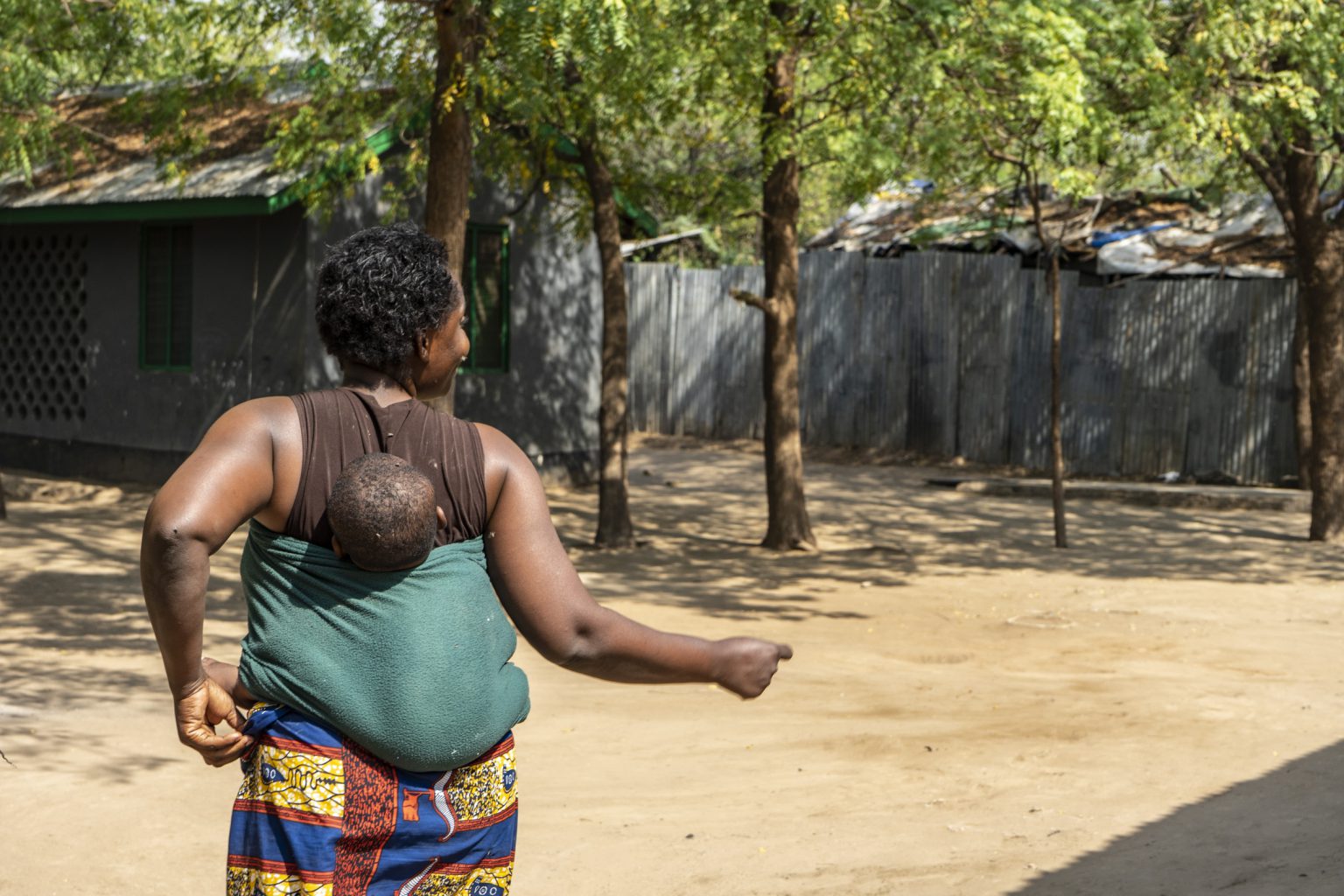
A woman, who is a survivor of gender-based violence, walks with her child at the Safe Shelter at the Kakuma Refugee Camp in Kenya. All photos by JRS – East Africa.
In my ministry at Jesuit Refugee Service (JRS) in Nairobi, we provide refugees with effective physical and psychological protection. The general aim of our protection activities is to minimize the violations of human rights that forcibly displaced people face, not only in their country of origin, but also in the country where they seek asylum. This is done with a special attention to survivors of gender-based violence (GBV) who need safe spaces and accompaniment.
Throughout the safe-space response offices of JRS, we continue to hear stories about perpetrators of violence attempting to crush survivors’ spirits and strip them of their dignity — stories of how they were only instruments for their perpetrators to carry out their maltreatment. We engage with countless women and girls who want a place of solace and find ways to overcome life’s adversities.
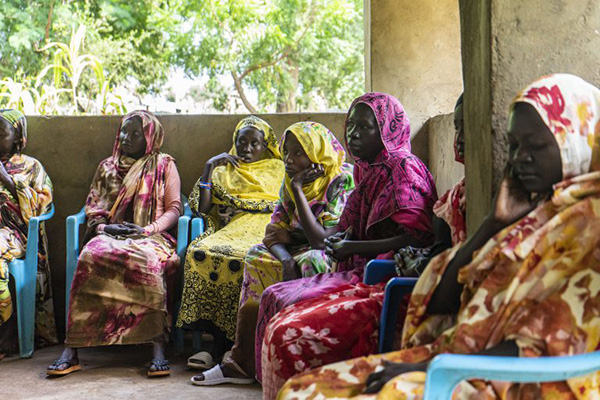
A women’s support group at a refugee camp in Maban, South Sudan.
We all need a place where we feel safe, secure, and protected. Instinctively, a space where we can be ourselves freely, without judgment shielded and protected. There is joy in knowing that we have created safe places for women and girls to let their hair down, sleep in peace, and know that food is not a down payment for abuse.
Finding the most effective approach to engage with victims of domestic abuse is a big issue, especially in disadvantaged populations. While numerous attempts have been made to reduce the frequency and severity of domestic violence, the cost of intimate partner violence often exceeds spending on primary education and healthcare costs associated with this epidemic according to the World Health Organization. Still, substantial work must be achieved. To break the cycles of abuse, women need crucial support systems and portals to programs that include preventive and concrete solutions.
There is a tendency for women in abusive relationships to suffer and awaken to the fear that things are out of control and that what they hold dear could be lost. As a result, they often withdraw to protect what they still have — security, stability, external protection, and most importantly children. Often, for the sake of others, they choose to remain in places that entrap them or where fear and abuse govern them. If they lose the protection and support of their husband/partner, they become targets for economic and social abuse and exploitation. This fear can be crippling, and leads them to remain, despite enduring a cauldron of abuse and belittlement.
According to our staff and the women who utilize the protective safe spaces in the refugee camps, the ability to express sentiments in a safe and supportive atmosphere is critical. In certain tribal traditional societies, women are rarely allowed the opportunity to speak publicly. Here, they say, they can talk “fruitfully,” free from the dominance of men, noted a staff member of the International Organization for Migration (IOM). Women and girls feel solidarity with other women and girls who share similar emotions, which helps all of them to build up their confidence and resilience.
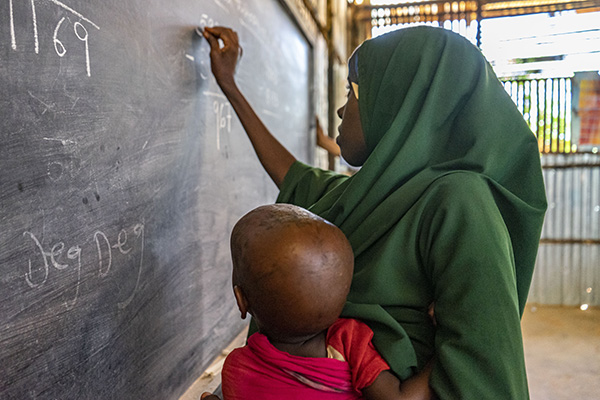
A woman at an adult literacy program in a refugee camp’s Safe Space.
Given their past experiences of violence and trauma, women and girls require mental health and psychosocial support (MHPSS) to minimize susceptibility and cope with current risks. These risks amplify in the refugee camps, where protection and security are difficult to come by. Living under tarps and dependent on food aid to survive, the increased risk of violence against women and girls with heightened mental and physical problems, and negative social outcomes yield an avalanche of stress.
In this difficult context, JRS’ Safe Haven protection places and other safe places in the refugee camps provide women and children with crucial protection, security and solace. This positive environment can then provide tools to empower, counsel and discuss women’s health and well-being, and other topics that target women/girls to unmanageable degrees.
Mirrors are not just used in psychosocial support sessions. “When the women come in here, they can take off their headscarves away from the view of men. They can use the mirror to apply face cream or put on some makeup. These are little things, but things that give them a chance to feel normal,” asserts support staff at IOM.
Access to MHPSS, education, economic rights and justice can help women and girls escape multiple forms of violence and poverty. Physical places of protection and security can be for many a sturdy roof overhead, a clinic offering medical care, or a mosque providing emotional and practical support by Muslim female caregivers.
I hope and pray that these women and girls find joy and freedom in their secure haven of protection and safety. Despite the dangers and threats they have endured, they all have the capacity to emerge as resilient, victorious women who reflect their place in society.
Dee Dungy, MKLM
Kenya
Please consider making a special gift to Maryknoll Lay Missioners’ “Walk With Us” campaign, which raises money for the recruitment, training and ongoing support of all of us lay missioners. We can only “walk with” the people here because you are “walking with” us. Now and through Dec. 31, thanks to matching gifts, every $100 given to the campaign in effect becomes $150. To donate ONLINE, click the “Walk With Us” button below. Thank you so much for your generosity!

